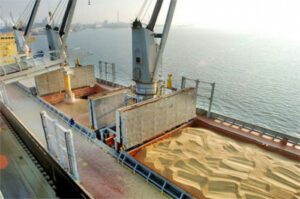
German Finance Minister Christian Lindner is planning a visit to Ukraine in the near future, ARD reports.
According to the publication, the politician plans to make his visit at the end of summer or autumn.
He noted that he is currently discussing this issue with the Minister of Finance of Ukraine Serhiy Marchenko. If you want to keep abreast of the most important events that should happen in Ukraine and the world, subscribe to the analysis and selection of event announcements on the YouTube channel “Expert Club”

Der ukrainische Boxer Oleksandr Usyk sagte, dass er in Zukunft nur noch an einem Kampf gegen den Briten Tyson Fury interessiert sei, berichtet champion.com.ua.
“Tyson Fury hat sich nicht zurückgezogen, er will boxen. Mein Team arbeitet in diese Richtung. Ich werde mit Tyson Fury boxen oder ich werde überhaupt nicht boxen. Nur Gott weiß, ob ich der absolute Champion werde. Aber mein Team wird helfen.” mich damit“, sagte Usyk nach seinem Rückkampfsieg über Anthony Joshua.
Usyk besiegte Joshua zum zweiten Mal und verteidigte seine IBF-, WBA-, WBO- und IBO-Titel. Usyk gewann auch den vakanten The Ring-Gürtel.
WBC-Weltmeister Tyson Fury wiederum, der kürzlich seinen Rücktritt bekannt gab, kündigte an, im Profiboxen bleiben zu wollen.
„Der Zigeunerkönig bleibt hier“, twitterte Fury, nachdem Usyk Joshua in einem Rückkampf besiegt hatte.

The fight between Usyk and Joshua lasted all 12 rounds. According to the results of the fight, one judge voted for Joshua, the other two gave the advantage to Usyk.
Ukrainian boxer Usyk won a rematch against British Anthony Joshua in Saudi Arabia.
Usyk defended the IBF, WBA, WBO and IBO championship belts, which he took from Joshua in September 2021, and also won the title of champion according to The Ring magazine – it became vacant after Tyson Fury announced his retirement.

PrJSC Centravis Production Ukraine (Centravis Production Ukraine), which is part of the holding Centravis Ltd., operates two lines for the production of pipes under shelling in Nikopol, where the company’s assets are located.
“Centravis production continues to operate. Hot and cold shops continue to work in 2 shifts. All key equipment is working. Production is provided with blanks and all necessary materials,” said Artem Atanasov, Sales Director (Chief Sales Officer, CSO), in a letter to customers.
At the same time, he noted that the logistics team of the enterprise is actively working and is constantly looking for the best and safest ways to deliver finished products.
Sales offices around the world in Essen, Milan, Krakow, Lugano, Houston and Dubai are open, the top manager emphasized.
Centravis is one of the world’s largest manufacturers of seamless stainless steel pipes, founded in 2000. Its production facilities are located in Nikopol (Dnepropetrovsk region). Included in the top 10 global players, supplies pipes to more than 70 countries from different regions, in particular to Thyssenkrupp, Buhlmann, BMW, Alstom, Linde, Samsung, Volkswagen.
Before the Russian aggression, more than 1,400 people worked at the enterprise.
Holding Centravis Ltd. was created on the basis of CJSC “Nikopol Stainless Pipe Plant”, service and trading companies LLC “Production and Commercial Enterprise “UVIS”. Its shareholders are members of the Atanasov family.
Owned by Centravis Ltd. 100% of the shares of PJSC “Centravis Production Ukraine” is located.

In the ports of Chornomorsk, Odessa and Pivdenny, 10 vessels are ready to be loaded as part of the “grain initiative”, more than 40 applications are expected to call at Ukrainian ports, Minister of Infrastructure of Ukraine Oleksandr Kubrakov said on his Facebook page in Friday.
According to the Minister of Infrastructure, work is underway to ensure that the volumes and rates of transshipment of agricultural products increase to 3-5 million tons per month.
Kubrakov noted that during the operation of the “grain initiative” 25 ships were sent from the three ports of the Odessa region, with a total of 630 thousand tons of agricultural products on board.
“We pay special attention to food exports for African countries. Another bulk carrier I Maria left yesterday, carrying 33,000 tons of agricultural products for the north of the continent,” he said.
As reported, in Istanbul on July 22, with the participation of the UN, Russia, Turkey and Ukraine, two documents were signed on the creation of a corridor for the export of grain and other agricultural products from three Ukrainian ports: Chornomorsk, Odessa and Pivdenny.
UN Secretary General António Guterres, who signed this document on July 22, visits the port of Odessa on Friday, accompanied by Kubrakov.
It is expected that on the same day, also in Odessa, the negotiations of the UN Secretary General with the Presidents of Ukraine and Turkey Volodymyr Zelensky and Recep Tayyip Erdogan on the issue of “grain corridors” for the export of Ukrainian agricultural products will continue.

Lifecell LLC mobile operator in April-June 2022 recorded a net loss of UAH 27.4 million compared to a net profit of UAH 116 million for the same period in 2021 due to write-offs of assets in the territories controlled by Ukraine, but not working for more than 92 days, and assets in the territories seized by Russia.
According to the parent company Turkcell, the company’s income in the second quarter of this year increased by 5.4% – to UAH 2.127 billion from UAH 2.018 billion in the second quarter of 2021, mainly due to an increase in income from international incoming calls and data transfer.
In the specified period, EBITDA increased by 8.8% – up to UAH 1.231 billion, and EBITDA margin increased by 1.8 percentage points – up to 57.9%, which the company explained with cost control measures implemented by Lifecell.
The report clarifies that the write-offs amounted to 204 million Turkish lire (about UAH 383.1 million at the rate in the report).
Lifecell’s capital investments in the second quarter of this year decreased by a third compared to the second quarter of the previous year, to UAH 659 million.
The active Lifecell subscriber base for the three reporting months decreased by 5.6%, or 500,000 – to 8.4 million subscribers, returning to the level of a year ago.
Active three-month ARPU in the second quarter of this year decreased by 1.8% compared to the previous quarter – to UAH 82.8, and MoU – by 5.5%, to 160.7 minutes. In annual terms, ARPU increased by 1.1%, while MoU fell by 14%.
“Meanwhile, three-month active 4.5G users grew by 7% year-on-year in the second quarter of 2022, to 76% of the total number of mobile data users. Lifecell maintained its leadership in the Ukrainian market in terms of smartphone penetration, which at the end of Q2 2022 reached 84.6%,” the company says.